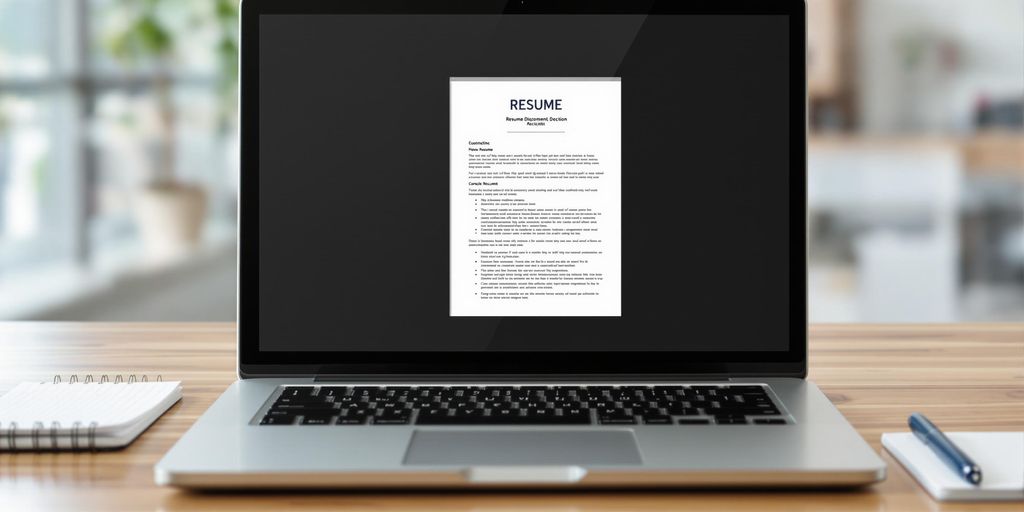So, you got a job offer. Congrats! That’s a big deal. Now, before you jump for joy and accept, it’s time to talk money. And guess what? Sometimes that chat happens over the phone. It might feel a bit weird at first, but knowing how to negotiate salary over the phone can really help you get what you’re worth. Don’t worry, we’re going to break down how to handle it like a pro in 2025.
Key Takeaways
- Phone calls let you set up discussions easily.
- You can talk directly and get answers fast.
- Always research what your job should pay.
- Keep your cool, no matter what.
- Get everything they promise in writing.
Understanding the Advantages of Phone Negotiations
Negotiating your salary over the phone in 2025? It might seem old-school, but it comes with some real perks. Forget those drawn-out email chains; a phone call can be surprisingly effective. Let’s break down why.
Flexibility in Scheduling Discussions
Phone negotiations offer a big advantage: flexibility. It’s easier to find a time that works for everyone without the hassle of coordinating in-person meetings or video calls. This is especially useful if you’re juggling multiple offers or have a busy schedule. Instead of waiting days for an email response, you can quickly hash things out in a single call. For example, you can schedule a call during your lunch break or after work hours, fitting it seamlessly into your day.
Facilitating Direct and Focused Communication
Phone calls cut to the chase. They allow for direct and focused communication, minimizing distractions and misunderstandings that can arise from written communication. You can immediately address concerns and clarify points, leading to a more efficient negotiation. Think of it this way: you can gauge the other person’s reaction in real-time, something you can’t do with email. This allows you to adjust your approach and tailor your arguments accordingly. It’s about having a conversation, not just exchanging messages. This is important when you negotiate salary.
Enabling Real-Time Feedback and Clarification
One of the best things about phone negotiations is the immediate feedback. You can ask questions and get answers right away, ensuring everyone is on the same page. This real-time interaction can prevent misunderstandings and speed up the negotiation process. For instance, if you’re unsure about a particular benefit, you can ask for clarification immediately. This back-and-forth helps build rapport and trust, making it easier to reach a mutually agreeable outcome. Plus, you can quickly address any objections or concerns the employer might have, showing that you’re engaged and responsive. You can find more information on RoboApply for additional tips.
Thorough Preparation for Your Call
Before you even pick up the phone, solid prep work is key. You wouldn’t go into a presentation without knowing your stuff, and this is no different. Think of it as your pre-game warm-up before the big game.
Conducting Comprehensive Market Research
Know your worth! Market research is about understanding the going rate for your role, experience, and location. Use sites like Glassdoor, Salary.com, and Payscale to get a sense of the average salary range. Don’t just look at the averages, though. Consider the high and low ends, and where you realistically fit based on your skills and experience. Also, check out any industry-specific salary surveys that might be available. This will help you understand the full compensation package.
Defining Your Desired Compensation Range
Don’t just have a number in mind; have a range. A range gives you flexibility during the negotiation. It also shows the hiring manager that you’re realistic and open to discussion. Your desired range should be based on your market research, your needs, and your walk-away point. What’s the absolute minimum you’d accept? What’s your ideal salary? What’s a number that would make you ecstatic? Having these numbers clear in your head will help you stay grounded during the call. Remember to factor in things like cost of living, potential for growth, and the overall value of the benefits package. It’s also a good idea to write down the critical points you discovered during the research. You should keep track of everything, from your relevant summary of qualifications and notable achievements on resume to quantifiable market data and details obtained from recruiters and hiring managers. You also want to include the desired salary and key reasons why you deserve it.
Anticipating Potential Counteroffers
They’re probably not going to just give you exactly what you ask for. Think about what their potential counteroffers might be, and how you’ll respond. What if they offer you less money but more vacation time? What if they can’t budge on salary but can offer a signing bonus? Prepare your responses in advance so you don’t get caught off guard. Consider what’s most important to you – is it the base salary, benefits, opportunities for advancement, or something else? Knowing your priorities will help you make informed decisions when negotiating salary tips over the phone.
It’s a good idea to practice your negotiation with a friend or family member. This can help you feel more comfortable and confident during the real conversation. It also gives you a chance to refine your talking points and anticipate potential objections.
Here are some things to consider when thinking about counteroffers:
- Salary: What’s the lowest you’ll go?
- Benefits: Are you willing to trade salary for better health insurance or a more generous retirement plan?
- Vacation Time: Could you accept a lower salary if you got more time off?
- Signing Bonus: Would a one-time bonus make up for a slightly lower base salary?
- Stock Options: Are you interested in equity in the company?
Mastering the Art of Communication

Maintaining a Polite and Positive Demeanor
It’s easy to get stressed during salary talks, but staying positive can really help. A good attitude can actually improve the negotiation’s outcome. Think of it like this: no one wants to work with someone who’s unpleasant. Keep the mood friendly and focus on how a deal can benefit everyone. Even if things get tough, staying calm and professional is key. It shows you’re composed and serious about the job.
Articulating Your Value Clearly
Before the call, figure out exactly what you bring to the table. What are your skills? What have you achieved? Be ready to explain why you’re worth the salary you’re asking for. Don’t be shy about highlighting your accomplishments. Use specific examples and, if possible, back them up with numbers. For instance, instead of saying “I improved sales,” say “I increased sales by 15% in six months.” This makes your value much clearer and more convincing. Preparing talking points ahead of time will allow you to stay clear and focused, and, also, to avoid improvisations. Practice your talking points to build confidence. Be assertive in advocating why you deserve an increased compensation package.
Controlling Emotional Responses
Salary negotiations can be emotional. You might feel nervous, frustrated, or even angry. But it’s important to keep those feelings in check. The last thing you want to do is become upset or angry. If you feel your emotions rising, take a deep breath and try to stay calm. Remember, it’s just a negotiation. It’s not personal. If you need to, take a break or reschedule the call for another time. Being able to manage your emotions shows maturity and professionalism, which are qualities employers value. Confidently and effectively negotiate your salary by remaining calm under pressure.
It’s a good idea to practice with a friend or family member. This can help you get comfortable talking about money and managing your emotions in a high-pressure situation. It also helps you spot areas where you can improve.
Strategic Information Gathering

Asking Incisive Questions About the Offer
It’s not just about the base salary. Asking the right questions can reveal a lot about the company’s overall valuation of the role and its employees. Don’t be afraid to dig deeper. For example:
- “Could you elaborate on the performance review process and how it impacts salary progression?”
- “What are the opportunities for professional development and training within the company?”
- “How does the company support employee well-being, and are there any specific programs in place?”
Remember, the initial offer is just a starting point. Your questions demonstrate your engagement and help you assess the true value of the opportunity. It’s a chance to show you’ve done your market research and are serious about the role.
Understanding the Full Compensation Package
Beyond the base salary, a comprehensive compensation package includes benefits, bonuses, stock options, and other perks. It’s important to understand the value of each component. Here’s a breakdown:
- Health Insurance: Understand the coverage levels, premiums, and out-of-pocket expenses.
- Retirement Plans: Inquire about 401(k) matching, pension plans, and vesting schedules.
- Paid Time Off: Clarify the number of vacation days, sick leave, and holidays.
- Bonuses: Understand the criteria for earning bonuses and the potential payout amounts.
| Benefit | Details |
|---|---|
| Health Insurance | Coverage levels, premiums, deductibles |
| Retirement Plan | Matching contributions, vesting period |
| Paid Time Off | Vacation days, sick leave, holidays |
Clarifying Benefits and Perks
Don’t overlook the value of benefits and perks. They can significantly impact your overall compensation. Consider these points:
- Remote Work Options: Understand the company’s policy on remote work and flexibility.
- Professional Development: Ask about opportunities for training, conferences, and certifications.
- Employee Discounts: Inquire about discounts on company products or services.
- Wellness Programs: Check if the company offers wellness programs, gym memberships, or other health-related benefits.
It’s also a good idea to ask about the company’s culture and values. A positive work environment can be just as important as a high salary. Remember that digital platforms can provide insights into company culture, so do your homework!
Navigating the Salary Discussion

Avoiding Premature Numerical Commitments
It’s a common tactic for employers to try and get you to state your salary expectations first. Resist this urge. Instead, try to deflect by saying something like, “I’m more focused on the role itself and the overall package. What’s the range you’re considering for this position?” This allows you to gather information before showing your hand. If pressed, provide a broad range based on your research, but emphasize that it’s flexible depending on the specifics of the offer. This is a key part of interview success.
Presenting Your Salary Expectations Confidently
When you do state your desired salary, do it with confidence. Don’t waver or apologize. Frame it as an investment in your skills and experience. For example, you could say, “Based on my research and experience, I’m looking for a salary in the range of $X to $Y.” Be prepared to explain why you’re worth that amount. Remember, confidence is key. It shows that you believe in your value. It’s important to understand your market value before this step.
Justifying Your Request with Data
Back up your salary request with concrete data. This could include your accomplishments in previous roles, industry benchmarks, or the cost of living in your area. For example, “In my previous role, I increased sales by 20% in six months. Based on industry data for similar roles in this location, a salary in the range of $X to $Y is appropriate.” The more data you have, the stronger your case will be.
Think of this as building a business case for yourself. You’re not just asking for more money; you’re demonstrating the value you bring to the company. Use specific examples and quantifiable results to show how you’ve made a difference in the past and how you can do the same for them.
Here’s an example of how to present your justification:
- “My skills in project management have consistently delivered projects under budget and ahead of schedule.”
- “I have a proven track record of improving team efficiency by at least 15%.”
- “My expertise in data analysis has led to significant cost savings for previous employers.”
Handling Objections and Counteroffers

Actively Listening to Their Perspective
It’s easy to get caught up in what you want during a salary negotiation, but truly listening to the employer’s concerns is super important. Understanding their perspective can give you valuable insights into their constraints and priorities. Maybe there’s a strict budget, or perhaps they have reservations about your experience in a specific area.
- Pay close attention to their words and tone.
- Ask clarifying questions to ensure you understand their point of view.
- Acknowledge their concerns before responding with your counterarguments.
By actively listening, you demonstrate respect and build rapport, making them more receptive to your proposals. This approach can turn a potential conflict into a collaborative problem-solving session.
Reiterating Your Value Proposition
When faced with objections, don’t back down from your worth. Instead, reiterate the unique value you bring to the company. Remind them of your accomplishments, skills, and how you can contribute to their success. Think of it as a gentle nudge, reinforcing why you deserve the compensation you’re seeking. For example, if they say the salary is higher than budgeted, you might respond with, “I understand budget constraints. However, my experience in [specific skill] has consistently led to [quantifiable result], which would quickly offset the initial investment.”
- Focus on quantifiable achievements and results.
- Tailor your value proposition to address their specific concerns.
- Use confident and persuasive language.
Proposing Alternative Solutions
Sometimes, a direct salary increase isn’t possible. That’s where alternative solutions come in. Think outside the box and explore other forms of compensation or benefits that can bridge the gap. This shows flexibility and a willingness to find common ground. Consider these options:
- Negotiate for performance-based bonuses: “If a higher base salary isn’t feasible right now, would you be open to discussing performance-based bonuses tied to specific goals?”
- Request additional vacation time: “Perhaps we could agree on the salary, but I would like to request an additional week of vacation.”
- Seek professional development opportunities: “Could the company invest in a certification or training program to further enhance my skills?”
| Benefit | Example |
|---|---|
| Signing Bonus | A one-time payment to offset initial costs. |
| Stock Options | The right to purchase company stock at a set price. |
| Remote Work Options | Flexibility to work from home, saving on commuting costs. |
| Health Insurance | Employer-sponsored health coverage. |
| Retirement Plans | 401(k) or other retirement savings plans with employer matching. |
By being open to alternative solutions, you increase your chances of reaching a mutually agreeable compensation package in 2025. Remember to stay calm and collected, and approach the negotiation with a business mindset. Don’t hesitate to ask for clarification to understand the employer’s perspective and address their concerns effectively. If you’re not getting the desired answer, make counter-arguments, leveraging information you’ve gathered to strengthen your position. And if, at the end of the negotiations, you’re still undecided, request some additional time to think things through. Don’t feel pressured to accept an offer that doesn’t meet your needs. You can always decline the offer respectfully and express appreciation for the opportunity.
Securing the Agreement
Confirming All Agreed-Upon Terms
It’s super important to make sure everyone is on the same page. Before you celebrate, verbally confirm every single detail you discussed. This includes your base salary, any bonuses, vacation time, start date, and other perks. Don’t just assume it’s all understood. For example, say something like, “Just to confirm, we’ve agreed on a starting salary of $90,000, three weeks of vacation, and eligibility for the annual bonus program, correct?”
Requesting a Written Offer
Never, ever rely on a verbal agreement alone. Always get the offer in writing. This is non-negotiable. A written offer is a formal document that protects both you and the employer. It should outline everything you discussed and agreed upon. If anything is missing or different from what you discussed, address it immediately. It’s much easier to fix discrepancies before you accept the offer than after. This payroll resume will come in handy when you start your new job.
Establishing Next Steps for Formalization
Once you have the written offer, ask about the next steps. What’s the timeline for signing and returning the offer letter? Is there an onboarding process you need to be aware of? Who should you contact if you have questions? Knowing the timeline and process helps you stay organized and shows the employer you’re serious and professional. Don’t feel forced to decide on the call. It’s okay to take a day or two to review the offer carefully. Also, be prepared to reneg on a job offer if the terms are unacceptable.
Post-Negotiation Best Practices
Reviewing the Written Offer Carefully
Once you’ve verbally agreed to terms, the next crucial step is to meticulously review the written offer. This document is the official record of your agreement, so ensure it accurately reflects everything discussed. Don’t just skim it; read every line, paying close attention to details like start date, job title, reporting structure, and of course, the compensation package. I remember when I got my offer, I was so excited that I almost missed that the signing bonus was half of what we discussed! Always double-check.
Seeking Clarification on Any Ambiguities
It’s common to find something in the written offer that’s unclear or different from what you expected. Don’t hesitate to seek clarification. Ambiguity can lead to misunderstandings down the line. For example, the offer might state “eligible for performance-based bonus,” but not specify the criteria or potential payout. Reach out to the hiring manager or HR representative and ask for a detailed explanation. It’s better to address these issues upfront than to be surprised later. I once had to ask about the vacation policy because it wasn’t clear if sick days were included in the total number of days.
Making an Informed Final Decision
After reviewing the written offer and clarifying any ambiguities, take the time to make an informed final decision. Don’t feel pressured to accept immediately. Consider whether the offer meets your needs and expectations, not just in terms of salary, but also in terms of benefits, work-life balance, and career growth opportunities. Compare the offer to your desired compensation range and market research. If you’re still unsure, talk to a trusted friend, family member, or career advisor. This is a big decision, so make sure you’re comfortable with it. I usually sleep on it for a night or two before giving my final answer.
It’s okay to take your time. A good employer will respect your need to carefully consider the offer. Don’t rush into a decision you might regret later. Remember, this is about your future, so make sure it aligns with your goals.
When to Decline an Offer
Sometimes, even after a seemingly successful negotiation over the phone in 2025, you might find yourself needing to decline a job offer. It’s not uncommon to be juggling multiple offers, or to realize that the role isn’t quite the right fit after all. Knowing when to walk away is just as important as knowing how to negotiate. Let’s explore some key scenarios where declining an offer is the best course of action.
Recognizing Unacceptable Terms
The most obvious reason to decline an offer is when the terms are simply unacceptable. This could be due to a salary that’s far below your minimum requirement, a benefits package that doesn’t meet your needs, or a work environment that doesn’t align with your values. Don’t feel pressured to accept an offer that will leave you feeling undervalued or unhappy. It’s better to continue your search for a role that truly meets your needs. For example, if you need comprehensive health insurance due to a pre-existing condition, and the offer’s health plan is inadequate, it’s a valid reason to decline. Always remember to express gratitude for the opportunity, regardless of the reason for refusal.
Maintaining Professionalism in Declining
Declining a job offer requires grace and professionalism. You want to leave a positive impression, even as you turn down the opportunity. Start by thanking the hiring manager for their time and consideration. Clearly and concisely explain your reasons for declining, without being overly critical. Avoid burning bridges, as you never know when you might cross paths with these individuals again in your career. A simple, polite email is often the best approach. For instance:
“Dear [Hiring Manager Name],
Thank you so much for offering me the position of [Job Title] at [Company Name]. I truly appreciate the time you and the team took to interview me and share insights about the role and the company. After careful consideration, I have decided to pursue another opportunity that is a better fit for my career goals at this time. I wish you all the best in your search for a suitable candidate.
Sincerely,[Your Name]”
Learning from the Experience
Every job offer, even one you decline, is a learning opportunity. Take some time to reflect on the negotiation process and identify areas where you can improve. Did you accurately assess your market value? Did you effectively communicate your needs and expectations? Did you ask the right questions to uncover potential red flags? Use these insights to refine your approach in future negotiations. Consider keeping a journal of your job search experiences to track what worked and what didn’t. This can be an invaluable resource as you continue to decline a job interview and advance in your career.
Building Confidence for Your Call
Practicing Your Negotiation Script
To really nail your salary negotiation, you’ve gotta practice! It’s not enough to just think about what you’re going to say; you need to say it out loud. Practicing your negotiation script helps you internalize your key points and deliver them smoothly. Think of it like rehearsing for a play. The more you run through your lines, the more natural and confident you’ll sound when the curtain rises (or, in this case, when you pick up the phone).
- Write out a script covering your key arguments, desired salary, and responses to common objections.
- Focus on clear and concise language. Avoid rambling or using filler words.
- Practice in front of a mirror to observe your body language and facial expressions.
Recording and Reviewing Mock Calls
Okay, so you’ve practiced your script. Great! Now, take it to the next level by recording yourself doing a mock negotiation. This is where you can really spot areas for improvement. Listen back to the recording and be honest with yourself. Did you sound confident? Did you stumble over your words? Did you effectively justify your salary expectations?
- Use your smartphone or computer to record your mock calls.
- Ask a friend or family member to play the role of the hiring manager.
- Pay attention to your tone of voice, pace, and clarity.
Visualizing a Successful Outcome
Don’t underestimate the power of positive thinking! Before your negotiation call, take some time to visualize a successful outcome. Imagine yourself confidently presenting your case, handling objections with ease, and ultimately securing the salary you deserve. This mental rehearsal can significantly boost your confidence and reduce anxiety.
Visualizing success isn’t just some woo-woo new-age thing. It’s a technique used by athletes, performers, and business leaders to improve their performance. By mentally rehearsing a positive outcome, you’re priming your brain for success and increasing your chances of achieving your goals. It’s about setting your ideal outcome and believing you can get there.
Here’s how to do it:
- Find a quiet place where you can relax and focus.
- Close your eyes and imagine yourself on the phone, negotiating confidently.
- Visualize the hiring manager agreeing to your salary request and expressing enthusiasm about your skills and experience.
Feeling nervous before a big call is totally normal, but you can learn to feel more sure of yourself. Getting ready and knowing what you want to say can make a huge difference. If you want to get better at this, check out our website for simple tips and tricks to help you feel ready for any call. You’ll find lots of helpful advice there!
Conclusion
So, there you have it. Talking about money on the phone might seem a bit scary at first, but with a little bit of practice and these tips, you can totally nail it. Remember, it’s all about being ready, knowing what you want, and staying calm. You’ve got this. Go get that salary you deserve!
Frequently Asked Questions
How do I figure out what salary to ask for?
It’s a good idea to research what people in similar jobs with similar experience make in your area. Websites like Glassdoor or LinkedIn can help. This way, you’ll know what a fair salary range looks like.
What if I get nervous or emotional during the call?
Try to keep your feelings in check. Focus on the facts and why you deserve the pay you’re asking for. It’s about being professional, not emotional.
Should I get the offer in writing after the phone negotiation?
Yes, it’s very important! Always ask for the job offer details in writing after your phone call. This makes sure everyone is clear on what was agreed to, like your salary, benefits, and start date.
What if the company offers a lower salary than I want?
If they offer less than you hoped, politely explain why you believe you’re worth more. Talk about your skills and how you’ll help the company. You can also suggest other things, like more vacation time or better benefits, if they can’t raise the salary much.
Do I have to accept or reject the offer on the spot?
You don’t have to say yes or no right away. It’s okay to tell them you need a little time to think about their offer. Ask when they need an answer by.
How can I feel more confident before the negotiation call?
Practice what you want to say out loud. You can even record yourself to hear how you sound. The more you practice, the more confident you’ll feel when the real call happens.
When is the best time to start talking about salary?
It’s best to wait until they’ve made a job offer. Once they offer you the job, that’s the right time to talk about salary and other parts of the compensation package.
How do I turn down an offer nicely if it’s not right for me?
Be polite and thankful for their time and the offer. Clearly state that the offer doesn’t meet your needs at this time. You don’t have to give a long explanation, but you can briefly mention why it’s not the right fit if you want.


















